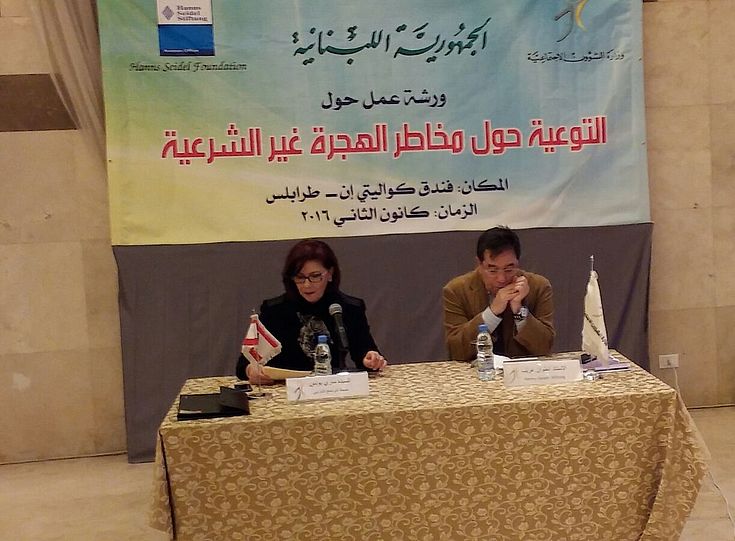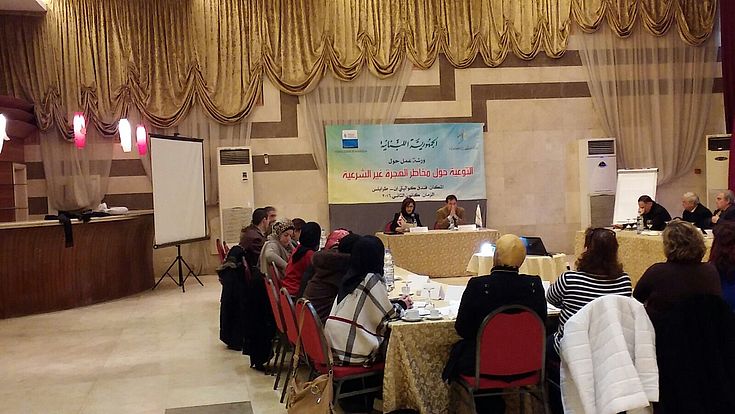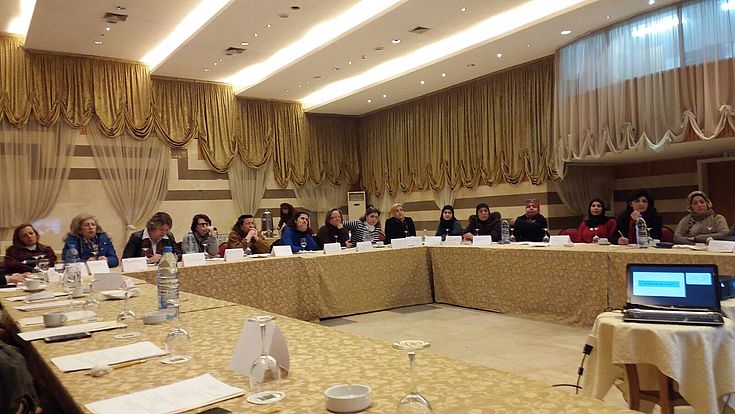What's happening at HSS?
Workshop on 'The Refugee Crises and illegal Immigration', January 27 - 29, 2016 in Tripoli / North Lebanon
The Syrian crisis and the huge influx of persons displaced from Syria has a tremendous impact on Lebanon's public finances, infrastructure and limited resources. The situation has exacerbated the situation for the poorest segments of the Lebanese Society who are seeing prices rise, rents go up and jobs are harder to get.
Displaced Syrians live all over the country, wherever they have found a place. To almost every agricultural field e.g. in the Bekaa a collection of improvised tents can be found, also unfinished buildings and old stables serve as a shelter. To provide these people with the essentials has been an unprecedented challenge for aid organizations as well as for the Ministry of Social Affairs (MOSA).
The Ministry of Social Affairs holds a major role in implementing effective social protection interventions prioritizing the most vulnerable, this means persons with disabilities, persons with particular legal and protection needs, the elderly, and the socio-economically vulnerable.
To strengthen the capacity of the Ministry of Social Affairs to fulfill its expanded mandate the Hanns-Seidel-Stiftung and the Ministry agreed on a program to train social workers or employees of other departments and employees of NGOs, who are involved implementing programs in the social protection sector with regard to displaced Syrians, on specific topics on order to deal with the various problems (see Lebanon Response Plan 2015 - 2016).
Lebanon is not a state party to the 1951 Geneva Convention relating to the Status of Refugees or to its 1967 Protocol. It also does not have legislation or administrative practices in place to address the specific needs of refugees and asylum seekers. As a result, refugees who enter the country without prior authorization or who overstay their visa are considered to be illegal in the country and are at risk of being fined.
According to the International Organization for Migration (IOM) the number of illegal immigrants who died while crossing the Mediterranean Sea is approximately 3000 (article posted September 25, 2015), most of them are Syrian refugees. A large number of refugees cross walk illegally to Europe every day. Also many Lebanese families are trying to get (forged) Syrian identity cards and follow the same route to Europe.
The goal of the workshop on "The Refugee Crises and illegal Immigration", which was conducted on the topic from January 27 - 29, 2016 in Tripoli, was to enlighten on this issues, to discuss the effects of illegal immigration on the host country, on the country left by immigrants, on the society in general and the consequences for the illegal migrants themselves.
Furthermore the danger of illegal immigration e.g. to Europe, the dangerous refugee routes, the problem of human traffickers and the misinformation and rumors about fairytale conditions in Europe were addressed. In working groups recommendations were developed on how to transfer awareness of the risks of illegal immigration to displaced and disadvantaged people.



